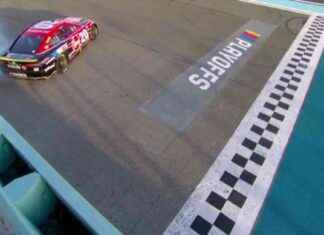When Antoni Baró Armengol, born in Tarragona in 1931, became president of the Professional Football League (LFP) in December 1984, the outlook was bleak. Created a few months earlier, with an ephemeral first president, Manuel Vega Arango, it was an organization without foundations or a promising future. “We were sublet in a small room in the Federation”, Baró liked to remember, “we had zero income…”. And the situation was volcanic.
In full conflict with Televisión Española (the only one) for football broadcasting rights, live matches were not offered and not even the traditional summaries with goals and the best plays. Absolute blackout. There was no peace with the pools either: the clubs wanted a higher percentage for the transfer of their brands and as a measure of pressure they had decided to hide the calendar. The days were not known in advance and it was impossible to print the pools with the names of the competitors. In addition, professional soccer had accumulated millionaire debts and did not know how to balance its accounts. Baró, endorsed by his effective management at the helm of Espanyol, received the unanimous support of the First and Second Division clubs and got down to work.
In a couple of meetings, he marked a different style: unblock conflicts, not create them. Dialoguing, cordial, agreeable, far from dictatorial impositions and negotiating pressures without the right to reply, Baró prevailed gently and with the discretion that characterized him. “Everything is easier with him, he goes straight to the point,” explained a president. “He gives us more than a thousand turns to all of us together”, another thought.
Baró grew up in Alicante and Córdoba, before returning to Tarragona at the age of 11 and settling in Barcelona at the age of 13. “I spoke an Andalusian so closed that not even God understood me,” he explained in this newspaper to Carlos Novo in an interview with September 1995. At the age of 25 he had registered as a member of Espanyol and in 1959, at 28, he had founded his own law firm. He built a solid prestige in the commercial field and a good reputation as a specialist in suspension of payments, like the one that, in a certain way, he had to face in Spanish football. In that world dominated by the histrionic Jesús Gil, Ramón Mendoza or Joan Gaspart, Baró brought elegance and common sense. So much so that sottovoce they called him the monk. He did not lavish himself on stringers or supergarcías (“I get up at seven, it’s my custom”), he did not star in scandals. He managed.
He negotiated the reorganization plan that led to the creation of sports corporations, relaunched income from television and pools and in his almost 18 years of presidency he overcame all the difficulties that there were. Suffice it to cite the motion of censure raised unsuccessfully by Jesús Gil. Or the tremendous scandal of the administrative relegation of Sevilla and Celta, which led in 1995 to the organization of 22-team leagues. He was always in favor of an 18-man competition, “but it wouldn’t work, you don’t want to, it’s that simple,” he pointed out. The differences with Ángel María Villar, federative president since 1988, also required a left hand.
In the Baró stage, the percentage of the pools that reached the clubs went from 2.5 to 10 percent of the collection. The first contract that he was able to close with TVE was for just 400 million pesetas, the last one managed jointly by the LFP, in 1996 and already with the private ones in activity, reached 19 thousand.
Baró died in Barcelona on February 11, 2001 as president of the LFP, a position for which he was re-elected for the last time in 1997. Despite the wear and tear of 13 years as president, he then obtained the endorsement of 41 of the 42 clubs and then the vote favorable of 38. “And those who did not vote for me abstained,” he stressed. And he added: “They blame me for being cold, pragmatic and cerebral. It is not like that, what I am not is garish”. What a difference.








